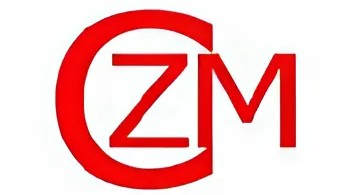ZCM Metals' Steel Industry Solutions
Rare Metal Products
Zinc Ingot
Zinc ingot refers to pure zinc, and of course, there will be impurities, but as zinc ingot, it has at least 90% purity. The use of zinc ingots: mainly used in die-casting alloys, battery industry, printing and dyeing industry, pharmaceutical industry, rubber industry, chemical industry, etc. Alloys of zinc and other metals are widely used in electroplating, spraying, and other industries.
Zinc has excellent atmospheric corrosion resistance, so it is mainly used in steel and steel surface coating (such as galvanized sheet), widely used in automotive, construction, shipping, light industry, and other industries. In recent years, Western countries have begun to try to use zinc alloy sheet as roofing material directly, which can be used for 120-140 years and can be recycled. The service life of galvanized iron sheet roofing materials is generally 5-10 years.
Zinc ingot is widely used in rubber, coating, enamel, medicine, printing, fiber, and other industries. Zinc has suitable chemical properties. Zinc can react with NH4Cl to release H+ ions. Zinc manganese dioxide batteries take advantage of this feature, using zinc alloy battery shells, not only as the battery electrolyte container but also participating in the battery reaction to form the anode of the battery. Its performance is also widely used in the pharmaceutical industry.
Aluminum Ingot
Aluminum is a silvery-white metal that ranks third in the Earth’s crust after oxygen and silicon. Aluminum is also known as a light metal because of its low density, which is only 34.61% of iron and 30.33% of copper. Aluminum is the world’s second non-ferrous metal producer and user after steel. Aluminum has a density of only 2.7103 g/cm³, about one-third the density of steel, copper, or brass. Because the aluminum material is light, it is often used in manufacturing cars, trains, subways, ships, aircraft, rockets, spaceships, and other land, sea, and air transport, to reduce the weight and increase load.
According to the Chinese standard, “The aluminium ingot for remelting is divided into eight grades according to the chemical composition, which are Al99.90, Al99.85, Al99.70, Al99.60, Al99.50, Al99.00, Al99.7E, Al99.6E” (Note: the number after Al is the aluminum content). The so-called “A00” aluminum is actually aluminum with a purity of 99.7 percent, known on the London market as “Standard aluminum.”
Common aluminum ingot remelting ingot: 15kg, 20kg (≤99.80% Al); T-shaped aluminum ingot: 500kg, 1000kg (≤99.80% Al); High purity aluminum ingot: 10kg, 15kg (99.90% ~ 99.999% Al); Aluminum alloy ingot: 10kg, 15kg (Al-Si, Al-Cu, Al-Mg); Plate ingot: 500 ~ 1000kg (plate making); Round ingots: 30 ~ 60kg (for drawing).
Copper Wire
In everyday life, copper wire is used for electrical wiring. Copper has good electrical conductivity and is used in large quantities in wires, cables, brushes, etc. It also has good thermal conductivity and is often used to make magnetic interference instruments, such as compasses and aviation instruments. It is easy to process both hot and cold, and can be made into pipes, bars, lines, strips, plates, foil, and other copper products.
Pure copper products are smelted and processed products. Scrap copper is the raw material for regenerated copper, which comes from social production, circulation, consumption, and other fields.
Copper wire has good electrical conductivity, thermal conductivity, corrosion resistance, and processing properties, and can be welded and brazed.
